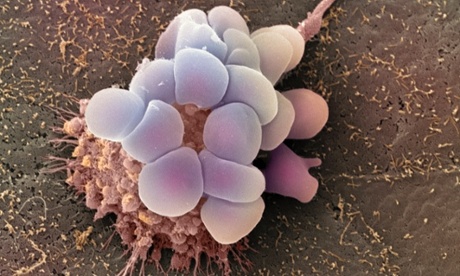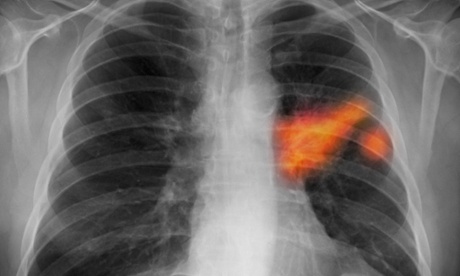The NHS is to offer children with brain tumours in England a groundbreaking new targeted drug therapy to tackle the disease – a development charities are hailing as the biggest breakthrough in decades.
Gliomas are the most common type of brain cancer in children but experts say the standard treatment of chemotherapy can be brutal and gruelling, and also carries the risk of side-effects such as weight loss, seizures and headaches.
A kinder drug therapy has got the green light from the National Institute for Health and Care Excellence (Nice). Studies showed it caused fewer side-effects, improved children’s response rate to treatment and their survival time without the disease getting worse.
Dabrafenib with trametinib was found to halt the growth of tumours for more than three times as long as standard chemotherapy for children with low-grade gliomas that have a specific genetic mutation, while also helping spare many of the harsh side-effects of chemotherapy.
The treatment will initially be available on the NHS in England for people aged one to 17 with low- or high-grade gliomas that have a BRAF V600E mutation.
The combination treatment, which can be administered at home rather than in hospital, works by targeting the proteins made by the altered BRAF gene that are responsible for uncontrollable tumour growth.
Gliomas grow in the brain or spinal cord and can be low grade, where tumours grow slowly, or high grade, where they grow more rapidly and may be fatal. About 150 children are diagnosed with low-grade gliomas every year in the UK and about 30 are diagnosed with high-grade gliomas.
Clinical trials have shown that as well having fewer side-effects than chemotherapy, the treatment stalled growth of low-grade gliomas for about two years (24.9 months) on average – more than three times as long as standard chemotherapy (7.2 months), NHS England says.
In some cases, tumours disappeared, though longer-term follow-up of patients is needed.
Dabrafenib is given as dissolvable tablets that are taken twice a day, and trametinib is an oral solution taken once a day. The drugs work together by blocking the growth signal from the mutant BRAF protein and can slow or even stop the tumour from growing.
Dr Michele Afif, the chief executive of the Brain Tumour Charity, said: “We are delighted that Nice has approved the first new treatment for paediatric brain tumours in decades.
“Though this will only affect a small population, it is of huge significance to them and their loved ones and represents real progress. We hope that this will be the first of many new treatments that will ensure our community can live longer and better lives.”
Suki Sandhu, whose eight-year-old son Raj died from a high-grade glioma six years ago, welcomed the rollout of the new therapy on the NHS.
“I had to make the decision to stop chemotherapy treatment for my son as he was suffering with horrible side-effects after years of harsh treatment. It was one of the hardest decisions I have ever had to make … We need kinder drugs and new treatments for those with brain tumours, like this treatment, and I am hopeful other families will go on to get access to these drugs and, hopefully, remain disease-free for longer and live good quality lives.”
Prof Peter Johnson, the NHS England national clinical director for cancer, said: “It is a significant step forward in treatment that has been shown to be easier to take than chemotherapy and very effective in blocking the growth of the disease, helping children have a better quality of life for longer.
“It can also be taken at home, meaning children and teenagers can spend less time in hospital having treatment and more time with their loved ones and doing things they enjoy.”











